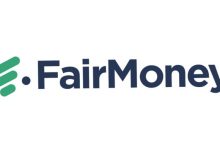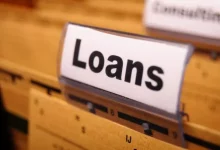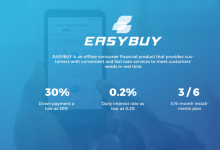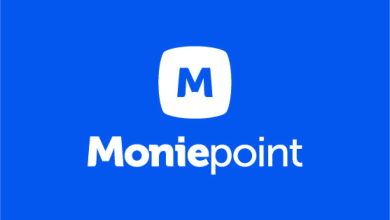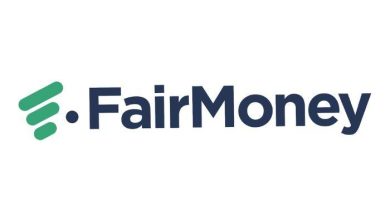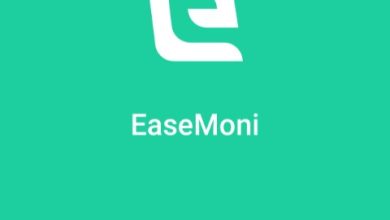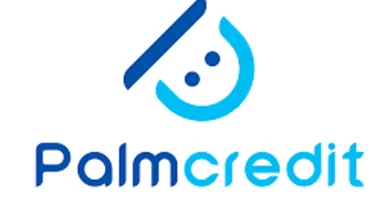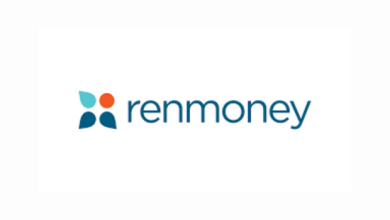Complete list of ongoing Nigerian federal government FGN and CBN loans and grants for 2023
The Federal Government of Nigeria (FGN) and the Central Bank of Nigeria (CBN) have assumed pivotal roles in extending financial assistance through loans and grants. These initiatives are geared towards stimulating economic growth, empowering small enterprises, nurturing entrepreneurship, and addressing societal welfare issues.
This article presents a comprehensive overview of the ongoing FGN and CBN loan and grant programs for 2023. By gaining insight into these programs, eligible individuals, businesses, and organizations can harness these opportunities to access financial resources and actively contribute to Nigeria’s economic advancement. Let’s delve into the diverse array of loan and grant initiatives offered by the FGN and CBN that are poised to positively impact various sectors of Nigerian society in the upcoming year.
List Of Ongoing Nigerian Federal Government FGN And CBN Loans And Grants For 2023
The Bank of Industry (BOI)
The Bank of Industry provides a range of financial programs, notably the Youth Entrepreneurship Support (YES) initiative, Graduate Entrepreneurship Fund (GEF) scheme, and Cottage Agro Processing (CAP) fund. YES focuses on offering young entrepreneurs financial aid to establish and expand their ventures. GEF targets graduates with promising business concepts but limited capital. In contrast, the CAP fund concentrates on providing financial backing to small-scale agro-processing enterprises. These programs collectively bolster entrepreneurship, empower youth, and stimulate growth within various sectors, ultimately contributing to economic development and job creation in Nigeria.
The Nigerian Export-Import Bank (NEXIM)
The Nigerian Export-Import Bank (NEXIM), a federal government agency, plays a crucial role in supporting Nigerian businesses through a variety of loan and grant programs. Notable among these are the Export Stimulation Facility (ESF), Rediscounting and Refinancing Facility (RRF), and Export Development Fund (EDF). ESF focuses on offering financial assistance to Nigerian exporters, while RRF provides short-term funding to commercial banks, enabling them to extend loans to exporters. Conversely, EDF targets long-term financing for exporters, facilitating business expansion. These NEXIM programs collectively contribute to boosting trade, fostering economic growth, and enhancing the competitiveness of Nigerian businesses in the global market.
The Nigerian Agricultural Insurance Corporation (NAIC)
The Nigerian Agriculture Insurance Corporation (NAIC) is a vital component of the comprehensive roster of Nigerian federal government (FGN) and Central Bank of Nigeria (CBN) loans and grants for 2023. This government agency specializes in offering insurance coverage to individuals and entities involved in the agricultural sector. Beyond insurance, NAIC extends financial support to farmers, facilitating their acquisition of essential agricultural inputs and equipment. In doing so, NAIC plays a pivotal role in safeguarding the interests of stakeholders in agriculture, promoting resilience in the sector, and enhancing food production and security. Its inclusion in the 2023 initiatives underscores its commitment to bolstering Nigeria’s agricultural landscape.
The Small and Medium Enterprises Development Agency of Nigeria (SMEDAN)
The Central Bank of Nigeria (CBN) actively participates in bolstering individuals and businesses throughout Nigeria by offering a diverse array of financial programs. These encompass the Agricultural Credit Guarantee Scheme Fund (ACGSF), the Commercial Agricultural Credit Scheme (CACS), and the Micro, Small, and Medium Enterprises Development Fund (MSMEDF). ACGSF focuses on extending loans and grants to support farmers and various stakeholders in the agricultural sector. CACS, in contrast, concentrates on providing credit to large-scale commercial agricultural enterprises. Meanwhile, MSMEDF aims to provide both loans and grants to micro, small, and small-sized enterprises across Nigeria, thus stimulating economic growth and fostering the development of these vital sectors.
Nigerian Youth Investment Fund (NYIF)
The Nigerian Youth Investment Fund (NYIF) is a specialized financial initiative aimed at empowering young Nigerian individuals aged between 18 and 35 in establishing and expanding their businesses. Operated under the Federal Ministry of Youth and Sports Development, this program extends loans to eligible youth entrepreneurs, ranging from N250,000 to N5 million, at favorable single-digit interest rates. Additionally, NYIF encompasses grants, comprehensive training, and various forms of support, nurturing and equipping the youth with the resources and knowledge essential for successful entrepreneurship. By fostering youth-led enterprises, NYIF contributes to economic growth and addresses unemployment challenges in Nigeria.
Development Bank of Nigeria (DBN)
The Development Bank of Nigeria (DBN) is a government-owned institution focused on advancing the growth of micro, small, and medium-sized enterprises (MSMEs) in Nigeria. DBN plays a pivotal role by providing loans tailored to MSMEs’ needs, including funding for working capital, asset procurement, and infrastructure enhancements. In addition, the bank collaborates with commercial banks, microfinance institutions, and other financial entities to expand financial accessibility for SMEs. Through these strategic initiatives, DBN actively supports the development and sustainability of MSMEs, fostering economic progress and job creation within Nigeria’s business landscape.
Export-Import Bank of Nigeria (NEXIM)
NEXIM, a government-owned development finance institution, plays a pivotal role by extending loans and guarantees to Nigerian exporters. Its diverse financial programs include the Export Development Fund (EDF), which offers long-term financing support to exporters. The Rediscounting and Refinancing Facility (RRF) provides short-term funding to commercial banks, facilitating their ability to lend to exporters. Additionally, NEXIM administers the Nigeria-Africa Trade and Investment Promotion Programme (NATIPP), strategically designed to stimulate trade and investment interactions between Nigeria and other African nations. These initiatives collectively reinforce NEXIM’s mission of promoting and enhancing export activities, fostering economic growth, and strengthening regional trade relationships.
National Agricultural Seeds Council (NASC)
The National Agricultural Seeds Council (NASC) is a government agency dedicated to aiding farmers and seed companies in Nigeria through grants and assistance. NASC channels funding towards vital areas like seed research, production, and certification. Furthermore, the council plays a pivotal role in enhancing agricultural practices by offering training and technical support to both farmers and seed companies. This comprehensive approach aims to elevate seed quality, consequently leading to improved crop yields. NASC’s efforts contribute significantly to advancing agricultural productivity and fostering sustainable agricultural practices across Nigeria.
Nigeria Incentive-Based Risk Sharing System for Agricultural Lending (NIRSAL)
NIRSAL is a CBN-owned institution that provides credit guarantees, insurance, and technical assistance to agricultural value chain actors in Nigeria.
The institution partners with commercial banks, input providers, and other stakeholders to increase access to finance for smallholder farmers and agribusinesses.
NIRSAL also offers training and capacity-building programs to farmers and other stakeholders in the agricultural sector.
CBN Creative Industry Financing Initiative (CIFI)
The Creative Industry Financing Initiative (CIFI) is a loan program orchestrated to propel the expansion of Nigeria’s creative sector. Administered by the Central Bank of Nigeria (CBN), it extends loans at a favorable single-digit interest rate to qualifying enterprises within domains like music, film, fashion, and various creative industries. These loans serve as vital financial backing for projects encompassing activities such as movie production, music recording, and fashion design. CIFI acts as a catalyst, invigorating the growth and vibrancy of Nigeria’s creative landscape by providing essential financial resources and fostering innovation and productivity within this dynamic sector.
CBN Micro, Small and Medium Enterprises (MSMEs) Development Fund (MDF)
The CBN Micro, Small and Medium Enterprises (MSMEs) Development Fund (MDF) is part of the 2023 Nigerian federal government (FGN) and Central Bank of Nigeria (CBN) loans and grants, designed to empower micro, small, and medium-sized enterprises. Recognized as engines of job creation and poverty reduction, MSMEs often struggle to access affordable financing. The CBN MDF bridges this gap by providing low-cost funds through Participating Financial Institutions (PFIs) like commercial and microfinance banks. It aims to enhance productivity, foster entrepreneurship, and facilitate economic diversification by financing working capital, equipment, capacity building, and infrastructure. The fund also offers non-financial support to ensure sustainable success, promoting inclusive economic growth and reducing income inequality.
FGN Special Intervention Fund (SIF)
The FGN Special Intervention Fund (SIF) is a 2023 initiative by the Nigerian federal government and the Central Bank of Nigeria (CBN), aimed at providing targeted financial support and interventions in critical areas. Its primary objective is to address specific socio-economic challenges and enhance the well-being of Nigerian citizens. The fund is allocated to priority sectors such as agriculture, healthcare, education, infrastructure, job creation, and empowerment programs. Managed by various government agencies, it employs a strategic approach to identify areas in need, assess issues, and implement impactful projects, including grants, loans, scholarships, infrastructure development, and welfare programs. Rigorous monitoring ensures resource efficiency, fostering inclusive development and improved living standards. Collaboration with stakeholders is essential for its success in driving economic growth and sustainable development.
CBN Anchor Borrowers Programme (ABP)
The CBN Anchor Borrowers Programme (ABP) in Nigeria offers low-interest loans to smallholder farmers, organized into Anchor Borrowers’ Groups (ABGs), to improve agricultural practices and boost income. These ABGs serve as intermediaries between the CBN, financial institutions, and farmers, facilitating access to funds. The program’s main goal is to link farmers with anchor companies, providing inputs like seeds and fertilizers in exchange for agreed-upon produce delivery. Commercial banks, microfinance banks, and development finance institutions disburse loans with flexible terms. ABP addresses farmers’ challenges, promotes food security, rural development, and economic growth. Eligible farmers with a BVN and viable projects can apply through participating institutions, fostering agribusiness and economic diversification.
F.A.Q
Is CBN giving any loan?
Yes, the Central Bank of Nigeria (CBN), in collaboration with NIRSAL Micro Finance Bank, has introduced a non-interest facility loan program. This loan opportunity is accessible to households, as well as Agricultural, Small, and Medium Enterprises (AGSMEIS). It provides financial support to promote economic activities and entrepreneurship within these sectors, contributing to financial inclusion and economic development in Nigeria.
How can I apply for CBN collateral free loan?
To apply for a CBN collateral-free loan, interested individuals should follow these steps:
- Receive training from the Entrepreneur Development Institute (EDI) in Lagos State.
- After completing the training, obtain a certificate of completion.
- Visit the NIRSAL Micro Finance Bank’s portal online.
- Submit your loan application through the portal and upload the certificate of completion from the EDI.
This process ensures that applicants are adequately trained and prepared before applying for the loan, enhancing their eligibility for this financial opportunity.
Which bank in Nigeria gives loan without interest?
In Nigeria, TAJ Bank operates in alignment with Islamic finance principles, which prohibit the giving or receiving of interest. Similar to Jaiz Bank, TAJ Bank offers banking services without interest. They have three branches across Nigeria and provide standard banking services, including ATM access, online and mobile banking, and more. This Sharia-compliant approach ensures that customers can access financial services in accordance with their beliefs, avoiding interest-based transactions.
Does the World Bank give grants?
Yes, the World Bank provides grants through initiatives like the REACH Knowledge, Learning, and Innovation (KLI) Grants. These grants are aimed at supporting results-based financing projects, specifically focusing on education systems in low- and middle-income countries. The primary objective is to enhance knowledge and understanding of how this approach can effectively improve learning outcomes. These grants are an integral part of the World Bank’s efforts to promote education and innovation in developing nations through financial support and research.
How to apply for Facebook grant in Nigeria?
To apply for the Facebook Small Business Grant in Nigeria, your business must meet certain eligibility criteria. These include having between 2 and 50 employees and having been in operation for over a year, established prior to the COVID-19 pandemic. Meeting these requirements is essential to qualify for the grant, which aims to support small businesses affected by the pandemic and promote economic recovery within the region.
Can I get a loan without a job in Nigeria?
Yes, it’s possible to secure a loan in Nigeria even if you’re unemployed. However, eligibility often hinges on having a strong credit history, a favorable credit score, and an alternative income source. Lenders may consider factors such as investments, rental income, or freelance work as acceptable sources of income. Demonstrating your ability to repay the loan is crucial in such cases, as it boosts your chances of loan approval despite not being employed.
Conclusion
The ongoing loan and grant programs provided by the Nigerian Federal Government (FGN) and the Central Bank of Nigeria (CBN) for 2023 are critical endeavors designed to foster economic expansion, poverty alleviation, and social progress within Nigeria. These initiatives underscore the government’s dedication to catering to the multifaceted requirements of its populace, nurturing entrepreneurial endeavors, and extending financial assistance to a wide range of sectors. They represent a commitment to promoting economic growth while also addressing the pressing needs of the nation’s citizens and facilitating inclusive development.
